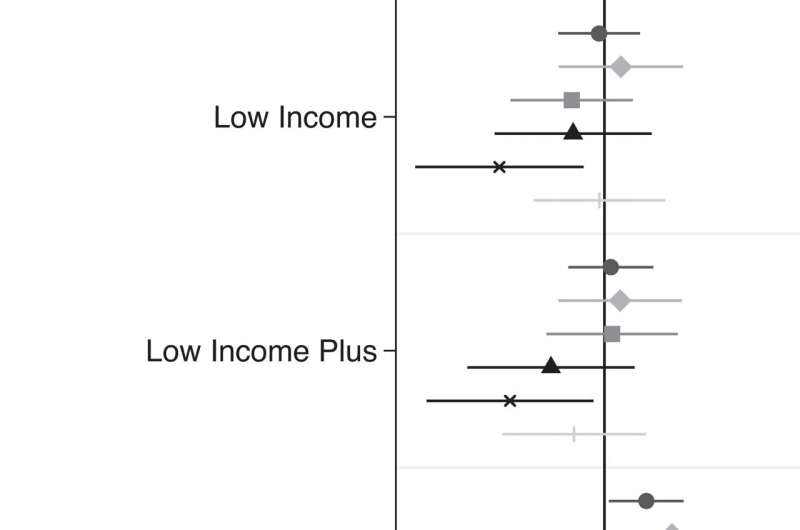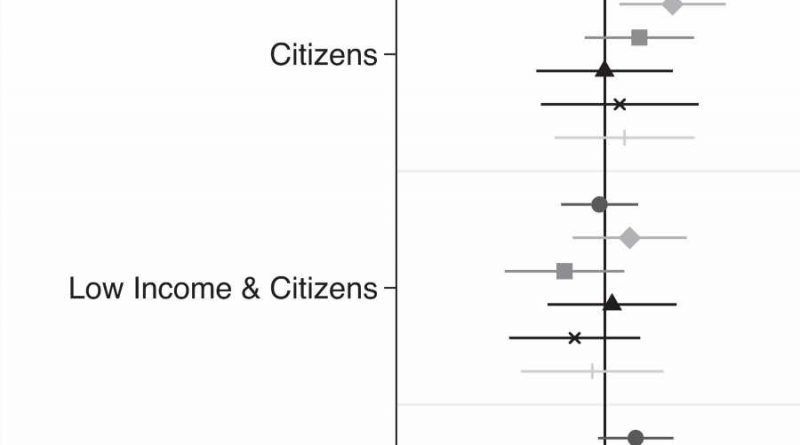Researcher investigates race and public assistance policy opinions

Despite the personal and societal costs, many people who are eligible for public assistance programs like Medicaid never enroll. The reasons behind decisions to not enroll in public assistance programs are personal and vary from person to person.
However, a major reason for this phenomenon are real and perceived barriers to applying, receiving and using benefits posed by administrative burdens. Research has found that policies behind administrative burdens are influenced by public opinion; however, the possible effects race and racial tolerance have on such opinions is unclear.
A new study led by Dr. Simon Haeder associate professor in the Department of Health Policy and Management at the Texas A&M University School of Public Health, investigates public attitudes about several common administrative burdens and the possible role race plays in these opinions.
The study, published in the journal Journal of Health Politics, Policy and Law, used a nationwide representative survey covering six policy and process design aspects for Medicaid and the Supplemental Nutrition Assistance Program (SNAP), two large public assistance programs.
The research team surveyed a nationally representative sample of 4,157 adults between Dec. 21, 2022, and Jan. 4, 2023. The aim of this study was to measure support for those six policy tools with respect to respondent race and racial beliefs. Haeder and colleagues collected demographic data on respondents such as race, age, sex, income and geographic region. They randomly assigned respondents into one of eight groups, each focusing on either Medicaid or SNAP and effects of administrative burdens on program enrollment.
Administrative burdens are typically put in place to limit fraud and misuse. However, they have also become a deliberate tool, at times, to limit access to public assistance. The study focused on six common policies such as requiring in-person interviews or allowing online applications, using data from other public assistance programs to determine eligibility, requiring annual or semi-annual renewals, allowing continuous coverage instead of verifying eligibility monthly and work requirements to receive benefits.
The researchers also included measures of prejudice and racial resentment. To assess prejudice, the study used an index of perceptions of different racial groups. The study used agreement or disagreement with four statements, such as discrimination has made it more difficult for Black people to be successful, among White respondents. The researchers also measured perceptions on the degree to which respondents believed burdens had a greater effect on non-Hispanic White people versus other racial and ethnic groups.
The study also measured how difficult respondents found administrative tasks like signing up for insurance, whether respondents had ever been on SNAP or Medicaid and the level of empathy respondents demonstrate. Additionally, the researchers provided some of the respondents with additional information about how administrative burdens disproportionately affect racial and ethnic minorities and lower income people.
The study found that receiving information about disproportionate effects of administrative burdens had no notable effect on acceptance of those policies. The researchers also found varying levels of support for different administrative burdens. Most respondents supported work requirements but preferred less frequent renewal requirements and allowing online alternatives to in-person interviews.
However, the analysis found that higher levels of racial resentment by non-Hispanic White respondents was a powerful predictor of favoring increased administrative burdens. In contrast, higher levels of empathy were associated with supporting lowered burdens; however, those who reported a greater ability to manage administrative tasks generally supported higher administrative burdens.
This study builds on research into how race and racial attitudes affect social policy. The study’s findings point to a complex interaction between racial identity, racial perceptions and racial resentment and tolerance of administrative burdens. The study also found important roles for empathy and other factors.
“Having a better understanding of how these factors affect tolerance for different types of administrative burden could inform policy changes aimed at getting more eligible people to sign up for assistance programs that would benefit them,” said Haeder.
More information:
Simon F. Haeder et al, More Than Words? How Highlighting Target Populations Affects Public Opinion about the Medicaid Program, Journal of Health Politics, Policy and Law (2023). DOI: 10.1215/03616878-10637708
Journal information:
Journal of Health Politics, Policy and Law
Source: Read Full Article
